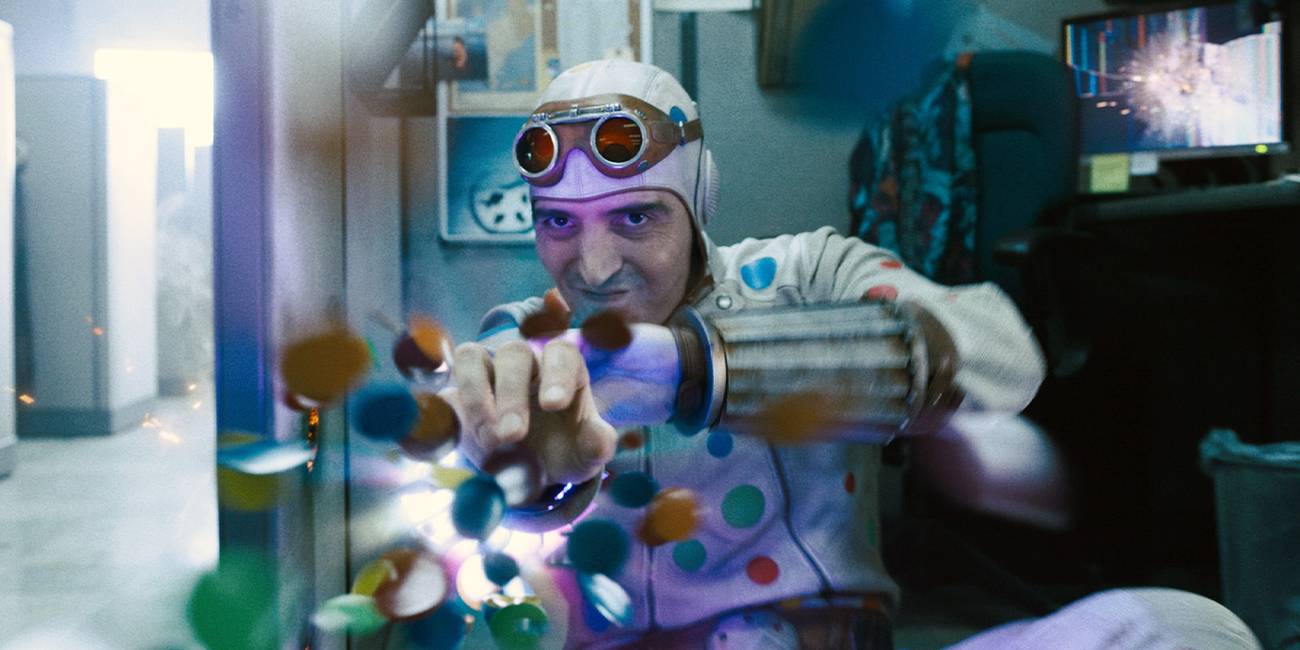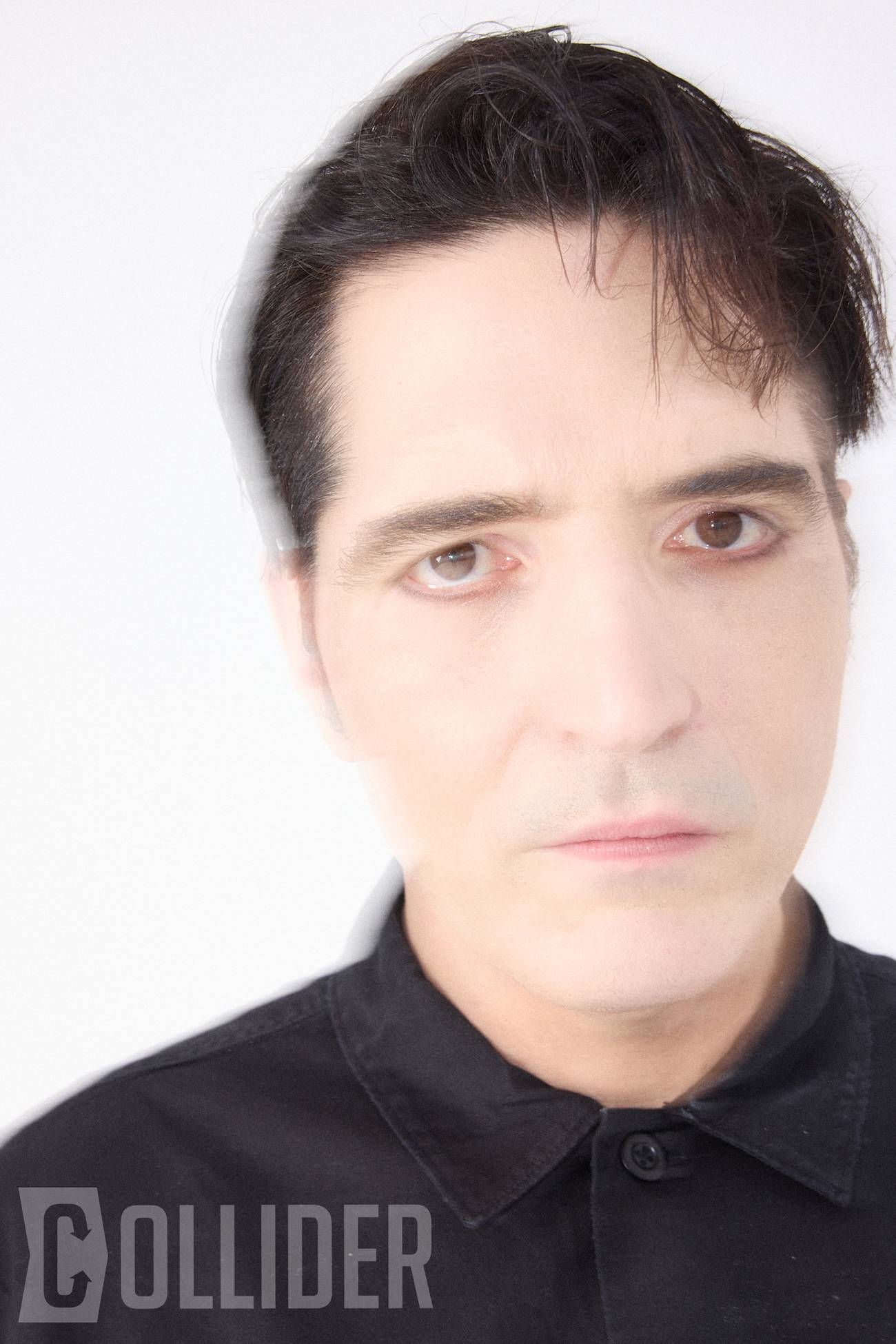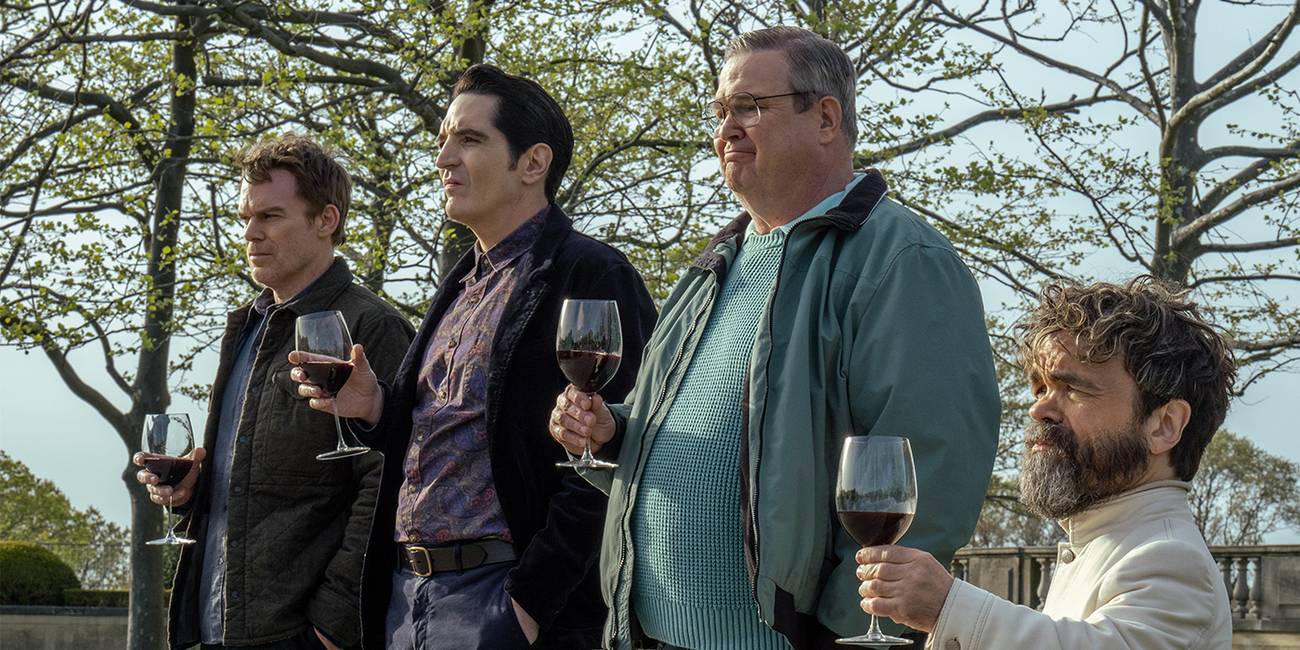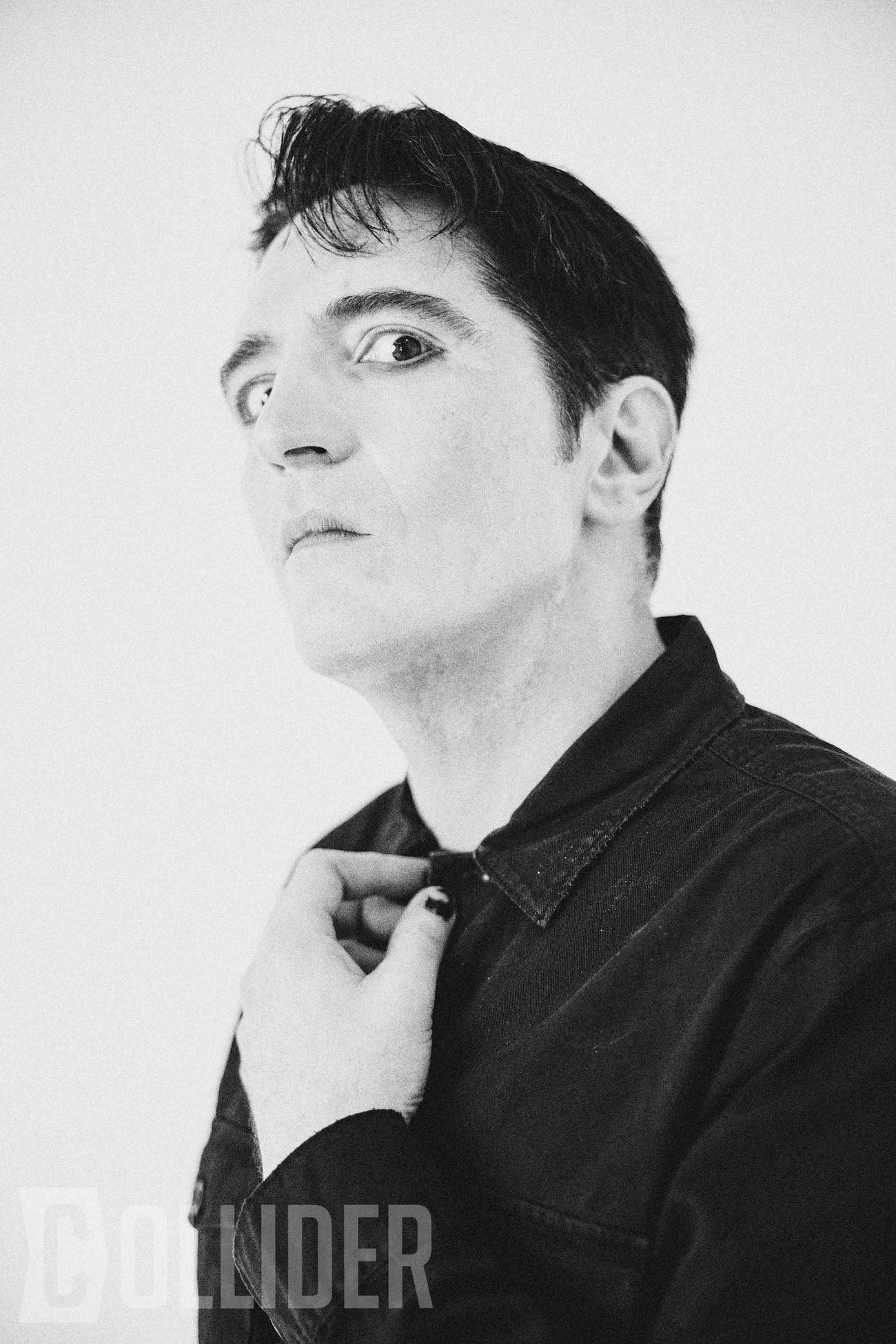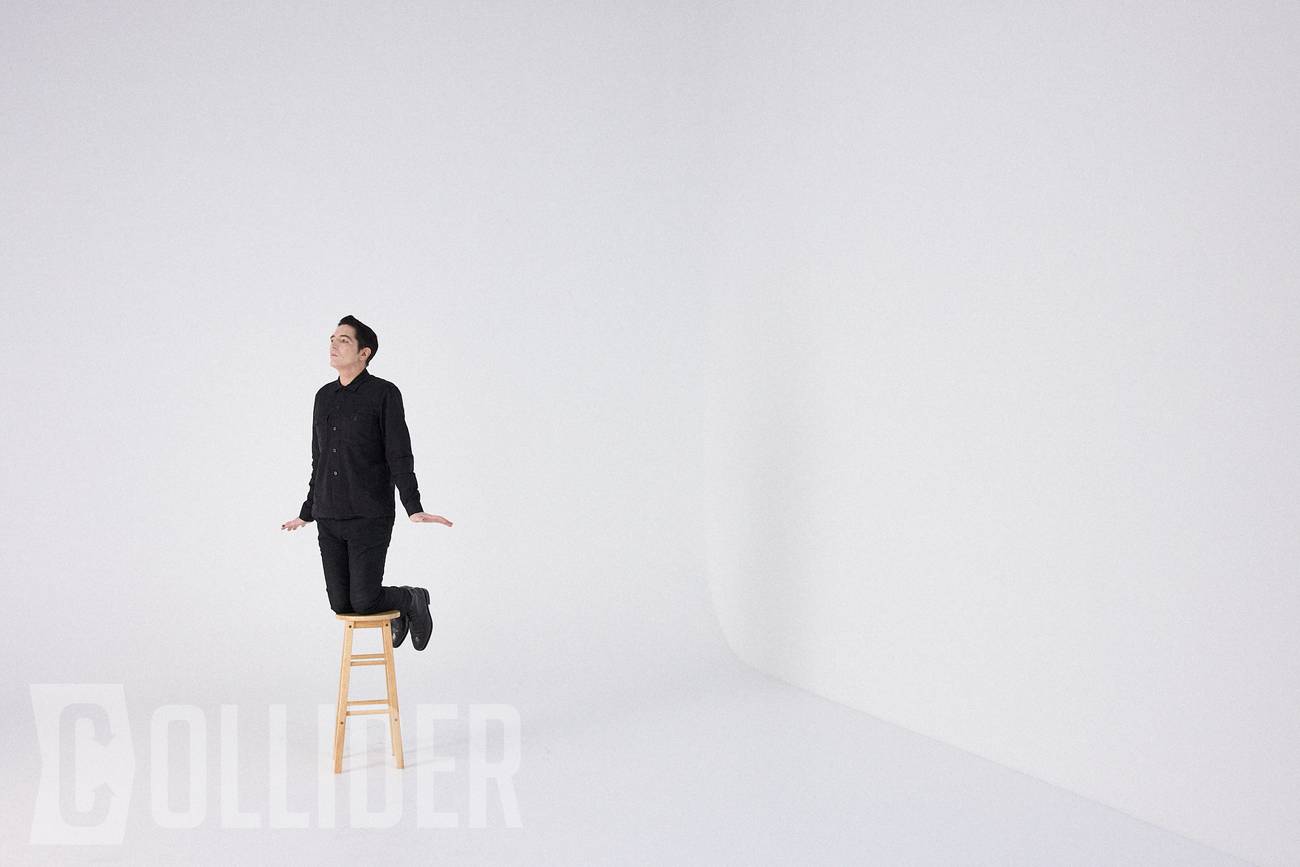David Dastmalchian Believes We’re All Good Monsters

“There are some pretty bad monsters out there. There might even be a couple walking around today. But I feel like most of us are just pretty good monsters.” After speaking with David Dastmalchian, this quote seems like the best summation of him, both as a person and as an actor. Less than an hour may not feel like sufficient time to leap to such a conclusion about anyone, but with Dastmalchian, it’s more than enough. The star of both genre and epically dramatic fare, who has worked with the likes of Christopher Nolan, Denis Villeneuve, and Mike Flanagan, is one of the more effusive people I’ve ever interviewed, with no topic of conversation too niche, sensitive, or sentimental. You wouldn’t think he’s a performer who easily slips into playing violent serial killers — most recently on Dexter: Resurrection.
He’s friendly and well-spoken, without feeling overly media-trained or sanitized. He’s a people person; that’s obvious from the first answer he gives. He’s pensive, with clear thought behind every response. Like his work, he is no stranger to the darkness of life and understands that humans are always imperfect — that they’re driven by a monster deep inside. But, as horror, the genre that Dastmalchian has made a home in, always posits, monsters don’t always have to be evil. It reminds me of something one of horror’s greatest storytellers, Guillermo del Toro, once said in an award speech: “Monsters, I believe, are the patron saints of our blissful imperfection.” That sentiment also captures Dastmalchian’s approach to the work, exploring the darkness inside people that can either break them or give them the strength to carry on.
Despite the actor getting up close and personal with boogeymen, vampires, and demons, it’s the real-world terrors he describes as the true beasts. “I think that bad monsters, more often than not, are representative in the way of these really toxic and dangerous systems that we’re a part of — making people who are outside of the binary feel threatened, making women unsafe, making outsiders unsafe. That kind of stuff is the way I see monsters manifest in mental anguish, anxiety, [and] depression. That’s where it feels like monsters.”
Dastmalchian and I are speaking over Zoom in late August, a hazy London afternoon for me and a bright and early LA morning for him. He’s calling from the offices of Good Fiend Films, the production company he launched in 2023 with a focus on genre storytelling such as horror, fantasy, and sci-fi across cinema, television, podcasts, and publishing.
Through Good Fiend, Dastmalchian co-produced 2023’s Late Night With the Devil, the ‘70s-set found footage horror film that sees the actor star as Jack Delroy, a fading late-night TV show host who will do anything to beat that damn Johnny Carson, even if it’s Satanic. It’s not Dastmalchian’s first-ever leading role, but it is the one that proved to the masses he could hold down a project on his own, bringing an affable, manicured charm while still supplying that nefarious underlay he captures so well. On our call, he’s, unsurprisingly, dressed in all black, with nail polish to match, and accents of silver jewelry; his jet-black hair is neatly quaffed, adding to the height of his 6’0″ frame, contributing to the overall impression of a much friendlier Severus Snape if he taught at an LA-based liberal arts school.
Dastmalchian Always Wants to Generate Empathy With His Stories
Dastmalchian is clearly someone who does not shy away from heavier and more philosophical topics. When our chat quickly shifts to empathy, I outwardly note how open and comfortable he always seems in interviews, and he has an immediate answer about why: “When it comes to stuff that has been so prevalent in other aspects of my life, like mental health, social-emotional issues, struggles, all of it has inspired and influenced the way that I tell stories. Usually, when people are interviewing me, it has some connection to my life as a storyteller, either in film or comics or other forms of expression.”
Dastmalchian grew up in Kansas and spent much of his childhood rescuing and keeping any animal he could, ranging from cats and dogs to armadillos and black emperor scorpions. We discuss our shared position as the youngest of four children — and whether coming last in big families is the reason we both might be so in tune with other people’s feelings. “I think that, empathetically, there has always been a deep well within me,” Dastmalchian admits — and then, without me even raising the topic, brings up his heroin addiction, an experience he has always been candid and open about, which also served as the inspiration for his 2012 movie Animals.
Those years in his past have clearly informed who he is today, and Dastmalchian has no interest in attempting to present a clear-cut, perfect image, acknowledging in the same breath that, while now 23 years sober, he is still a work in progress. “I’m not ashamed to talk about the fact that I am a thoroughly defective human being who has all these default behaviors and mental struggles, and emotional struggles, and I always have, and I probably always will. But I am trying to work on them and improve.”
“Grandiosity is such a wonderful trait in actors and artists. It really sucks as a family member.”
As far as Dastmalchian is concerned, it’s crucial to keep talking about his past publicly, in the hopes of helping others who might be going through a similar experience. He recalls a childhood memory of the TV shows his mother would watch through the afternoon, and the revelation that tales of human suffering, especially about celebrities, have always made for “splashy stories,” with addiction or mental unwellness wielded as a form of cheap entertainment. Dastmalchian has used his work as an antidote to this culture, which he describes as “shame-based.” Everything he’s done now is an effort to combat that approach.
“People who may read this interview or listen to me on a podcast, maybe they just are feeling like they’re completely alone right now, and I don’t think we are.” For Dastmalchian, his drug addiction attacked that integral part of who he is. “When you’re abusing drugs and alcohol as a form of therapy or a treatment for your struggles, it alienates you, and it also makes it impossible for you to go past certain depths when it comes to your empathic capacity with others. When I got clean and sober, that well started to deepen.”
Dastmalchian is also candid about his struggles with anxiety, something he has sometimes felt has “neutered” his ability to act. “I ran into so many struggles with just the continuing frustration that I had over feeling anxious — and then acting out in ways that, maybe, as opposed to being as empathetic as I would like to be, were more controlling or grandiose.” He admits that this has made drawing the line between human and the actor more difficult.
“Grandiosity is such a wonderful trait in actors and artists. It really sucks as a family member.” After 20 years in the industry working with some of the greatest filmmakers of all time, Dastmalchian also confesses to a fixation on others’ opinions, something he continues to battle. “Sometimes I have found myself quite addicted to the approval or praise of others through being a storyteller, and I’ve had to really distance myself from that, not only because it’s good for my mental health, but because I’m never going to achieve the proficiency in storytelling that I hope to achieve if the motivating factor is pleasing the audience.”
The Film That Redefined Dastmalchian’s Confidence as a Filmmaker
Hearing all this gives even more weight to Animals, which I watched shortly before our interview. It’s a love story between a couple who are both heroin addicts, sleeping in their car while devising tricks and frauds to obtain their next hit, whether feigning an injury in a hospital or pretending to be a sex worker and bolting before taking off any clothes. Dastmalchian stars as Jude, a fictionalized version of himself, opposite Kim Shaw as Bobbie. What will surprise you most about Animals is that, while written from experience, it is one of the most tender-hearted stories about addiction. A far cry from Trainspotting or Requiem for a Dream’s gritty, unrelenting surrealism, Animals is a restrained, uncomfortable, but ultimately hopeful tale of love, endurance, and the belief in people’s ability to recover.
“Stepping back into the mindset of a practicing addict certainly had its challenges, but the thing that was hard about that was just making a movie that felt like I was making a movie on my own.”
Dastmalchian was 10 years sober when making the film, and maintaining the belief he could tackle a project on this scale was actually a more intimidating prospect than revisiting one of the most difficult periods of his life: “Stepping back into the mindset of a practicing addict certainly had its challenges, but the thing that was hard about that was just making a movie that felt like I was making a movie on my own, like trying to raise money and run locations and help with the casting and getting office space, and all of that. It was just one of those films where you’re just wearing every single hat. I didn’t sleep, and I was a complete maniac.” That humility extended not just to Dastmalchian’s own capabilities as a writer, but also to what he was willing to ask of the film’s audience. “Have I earned the privilege of asking people to sit there for an hour and a half and go on a journey with me that’s not fun?”
Dastmalchian recalls initially feeling the need to stick close to more somber dramas in the vein of Animals to better establish himself in the industry. “I didn’t know if I’d be taken seriously if I didn’t present stories in a dramatic landscape. Now, I feel super excited and comfortable about going just as deep but in a space that may involve a superhero or may involve a meta-human, and it’s very liberating.” It’s understandable, but it’s also ironic, as Dastmalchian is now one of the most successful character actors in the genre.
He’s appeared in DC projects such as The Suicide Squad and lent his voice as Calendar Man and Penguin to multiple animated Batman films. He featured in both Ant-Man movies opposite Paul Rudd and had supporting roles in Dune and Blade Runner: 2049 with frequent collaborator Denis Villeneuve. It was in Villeneuve’s Prisoners that most audiences may remember first noticing Dastmalchian as the strange, skittish Bob Taylor, who seems like an obvious suspect for the kidnapping of two young girls, but ends up being just as much of a victim. It’s a layered role that plays to the actor’s innate strengths, initially appearing as a peculiar villain before exposing something much more complex and troubled.
Working With Heath Ledger on ‘The Dark Knight’ Was a Wonderful Experience
But Dastmalchian might just have the best-ever first film role of anyone in Hollywood in The Dark Knight. The actor made the most of a limited role as one of the Joker’s henchmen, displaying a menacing, full-bodied intensity he has since honed to perfection. I ask him about working with the late, great Heath Ledger, who died from an overdose, when he was tackling such a defining role. Dastmalchian only has the fondest recollection: “What was so fundamentally fascinating and inspiring to me was to be around this young man who was loving the work so much, was so kind and soft-spoken, and warm with everyone around him on set — including me, who was, in many regards, like a glorified extra.”
With so much legend surrounding Ledger’s preparation for the role, including countless rumors in the years since sensationalizing the actor’s approach to the character, it’s refreshing to hear someone who was actually present on set speak about Ledger’s work with a grounded respect and honesty. “I have two lines in this giant film, and here’s the star of the movie just treating me kindly, listening, talking to me, having nice conversations,” Dastmalchian reflects. “Then, when it was time to go into performance mode, he could just turn his dial on and become something else. That’s the skill. That’s the level of proficiency that I dream of as an artist. I was so lucky that I had a few stolen days just getting lost in little conversations we’d have. It was such a gift. What a gift.”
“When I met him, I jokingly said, ‘When I heard that you were going to be the Joker, I thought it was a terrible idea,’”
Dastmalchian, a devout comic book lover, even admits to thinking Ledger was a terrible choice for the Joker when it was first announced, and he told the actor to his face. “When I met him, I jokingly said, ‘When I heard that you were going to be the Joker, I thought it was a terrible idea,’ just being silly, but I was being honest — and he laughed so hard, he thought that was really funny. He said, ‘I did, too.’ And look how fucking wrong I was. Best Joker to ever adorn the makeup of the Clown Prince of Crime. And I don’t think that anyone would ever be able to top it.”
With his career’s larger focus on genre films and shows, Dastmalchian has accumulated a pretty varied repertoire of characters. When I ask him who has stuck with him the most, he pauses, thinking deeply about his response before landing on Gurathin from this year’s sci-fi Apple TV show, Murderbot, starring Alexander Skarsgård. Dastmalchian describes him as being “the hardest one to shake” of all his characters due to how similar they are.
Like the actor, Gurathin is a recovering addict, but the similarities don’t end there: “He struggles deeply with compulsive control and codependency like me, is highly anxious and deals with intense attachment disturbances like me, is constantly catastrophizing and worrying about the future and is afraid that the people he loves and cares about are either going to come into harm or just vanish like me. Oh my God, I could go on.”
Dastmalchian Took On a Dual Role As the Gemini Killer on ‘Dexter: Resurrection’
Luckily, Dastmalchian doesn’t seem to have a lot in common with his character, Gareth, who appears in the first season of this year’s Dexter: Resurrection. The storyline of Dexter Morgan infiltrating a secret serial killer club brought in a soirée of recognizable faces as deranged murderers, including Neil Patrick Harris, Krysten Ritter, Eric Stonestreet, and Peter Dinklage. Dastmalchian’s Gareth is the most reticent of the group, a pompous perfectionist whose “great yearning” to murder has seen him rack up a high body count — but after Dexter murders him, a shocking twist reveals that Gareth has an identical twin.
I asked Dastmalchian whether he planned which twin was which in each scene, despite them being visually indistinguishable. “I sat down with [executive producer] Scott Reynolds, and we talked through the timelines. Then, [Dexter creator] Clyde [Phillips] and I got to discuss, and by the time I was working with each of the directors, we had a really great plan of action. It was really helpful for me to think about who I was at which time, and it helped me create some backstory as to which of the twins would take which responsibility.”
I’d assumed Dastmalchian would’ve researched real-life serial killers to prepare for the part, but instead, he looked to the literary character with a crucial connection to the murder of John Lennon: “What I kept thinking about was Holden Caulfield in The Catcher in the Rye and how that outlook on the world could evolve into a grown adult. Although I approached the two Gareths as two separate characters, there was this interesting, spiritual, and psychological development that I did as if they were two parts of the same whole.”
“It was deeply uncomfortable because I was portraying a person who had grossly harmed real human beings.”
This isn’t the first time that Dastmalchian has played a serial killer, having taken up the role of the real-life Boston Strangler in the 2023 film of the same name. Dastmalchian tells me that the characters, despite both being heinous murderers, were vastly different. On Dexter, he enjoyed the “freedom to play, because it is a high-suspense, drama, horror, kind of fictional world in which there’s enough fantasy involved that you could really stretch.” With Boston Strangler, however, the fact that he was playing a real-life monster weighed heavily on him. “It was deeply uncomfortable because I was portraying a person who had grossly harmed real human beings. Those victims, some survivors — because he didn’t kill all of his victims. He built up, let’s just say, to the murders, so the acts of violence that preceded the murders were still traumatizing for the victims and their families, their offspring, their descendants.”
Despite the role requiring Dastmalchian to go to such a dark place, he’s appreciative of the approach that Boston Strangler takes in focusing on the female journalists, played by Keira Knightley and Carrie Coon, who overcame every obstacle to discover the truth and bring the serial killer to justice. “It’s about these incredible women who are trying to fight through all the red tape to really have their voices heard. But as the Boston Strangler, you’re telling a story about a person whose wake, the ripple of the trauma they’ve inflicted on people, still exists in the present world.”
Horror Is Comfort for Dastmalchian
Aside from serial killers, Dastmalchian has inhabited plenty of tormented and morally grey characters across genres, but notably in horror. While Dastmalchian’s most famous horror role to date is arguably Jack Delory, making Late Night With the Devil was a disconcerting experience for Dastmalchian, who discovered that he bore even more similarities to his character than he initially thought. “The most challenging thing about Late Night with the Devil was just mustering the courage to take on a character that felt so distant from myself. Once I did the work and dove into Jack’s psychology, I realized how much I actually had in common with him. That’s when the real fun began — and by fun, I mean complete and utter terror.”
“There’s something about getting your pulse up and your blood flowing in a safe space that can feel both exhausting and relieving.”
Previously, Dastmalchian has spoken about how The Texas Chain Saw Massacre is both the most frightening and the most comforting film he’s ever seen. Any horror fan will understand this seemingly bizarre symbiosis of fear and comfort, but I ask Dastmalchian why a film that terrorizes him also brings him solace. “I get so terrified, sometimes, just waking up and being alive. My brain often slips into a default mechanism where it puts me in the future and deeply troubling emotional states of being about events that haven’t even happened yet. When I watch a film about a homicidal family of cannibals, who are manifesting the kind of terror and dread that shadows any of my own everyday anxieties, it gives me a kind of perspective. There’s something about getting your pulse up and your blood flowing in a safe space that can feel both exhausting and relieving.”
I’m not surprised to hear that horror was off-limits to Dastmalchian, who grew up in a religious household; he describes the genre as a “forbidden fruit,” which directly parallels the experiences of his Boogeyman director, Rob Savage. This doesn’t feel like a coincidence, as the forbidden act of watching horror as kids is, ironically, what ramps up our interest. For Dastmalchian, discovering horror movies was cathartic after years of being told that he shouldn’t engage with the macabre. “Those of us with an inclination towards playing in the shadows can’t help but go explore and see what all the fuss is about. I found it really perplexing that we were often expected to sit with uncomfortable feelings and remedy those feelings with only one tool. As I began to navigate my own discomfort and sometimes get a chance to shake out all of the jitters while riding the roller coaster of watching a horror movie, I realized there may be other ways to approach this experience.”
Like any conversation between two horror nerds, Stephen King’s name comes up. Dastmalchian previously took on the fateful part of Lester Billers in one excruciatingly intense scene in Rob Savage’s 2023 adaptation of King’s short story The Boogeyman, but he’s also starred in Mike Flanagan’s take on The Life of Chuck. The famed horror writer is still Dastmalchian’s dream guest on his podcast, Grave Encounters, which sees him and his interviewee talking from open coffins. Meanwhile, if Dastmalchian could adapt any King book, his choice is probably the most ambitious and daunting pick: The Dark Tower. He also takes a moment to recall how mindblowing it was when the iconic author, who is always quick to share his thoughts about movies on social media, tweeted praise for Late Night With the Devil before it had even premiered.
Whatever Happens Next, Dastmalchian Is Living His Dream
So, what’s next for David Dastmalchian, the character actor who has seemingly traveled to every universe, tried his hand in all genres, and been directed by the best of the best? He’s been tapped to play Mr. 3 in the upcoming second season of Netflix’s One-Piece live-action series, a character he tells me he felt “thoroughly at home with.” On the big screen, Dastmalchian has been cast as M. Bison in Kitao Sakurai’s Street Fighter film, an adaptation of the video game of the same name. Despite my efforts, Dastmalchian remains tight-lipped about both projects, although he does reveal that taking on Mr. 3 is a huge deal for him, as both he and his kids are avid fans of One Piece, and promises me that Season 2 will “blow people’s minds.”
Dastmalchian had three dreams when he moved to Hollywood: to collaborate with David Lynch, to play a Bond villain, and to work with the Muppets. Luckily, Dastmalchian succeeded at the first with 2017’s Twin Peaks: The Return, but as a self-professed impassioned Muppets fan, he’s still waiting for that particular call. Playing a Bond villain doesn’t seem wholly unreasonable for Dastmalchian, either, now that Villeneuve is set to direct the first film of the spy franchise’s new, post-Daniel Craig era. One could easily see Dastmalchian slipping into a role that calls back to the pomp and menace of iconic Bond baddies like Donald Pleasence’s Blofield or Christopher Lee’s Scaramanga.
“I’m a journeyman actor, come from the stage, and I dream of a lifetime doing this stuff.”
Whatever lies ahead for Dastmalchian, whether he’ll return to more dramatic fare or continue his streak of genre projects, he’s appreciative of what it’s taken him to get to where he is today. “I’m a journeyman actor, come from the stage, and I dream of a lifetime doing this stuff.” Even after two decades, he remains a fanboy at heart, in service to the story for the sole reason of making it worthwhile for the viewer. It’s obvious that Dastmalchian’s battles with mental health and addiction have kept his feet on the ground, unwaveringly in awe of the fact he gets to do what he loves.
It’s a clichéd platitude, but Dastmalchian’s life and career are both reminders of the adage that what doesn’t kill you makes you stronger. Many actors who, once more well-established, become so entrenched in their privilege that they can’t operate with any other perspective. Dastmalchian is the odd one out, acknowledging that every day of telling stories is a dream come true. “I’m so grateful. I am, every day, waking up, no matter how stressed I may feel about whatever it is that I’m dealing with in the moment. Please know how much gratitude I have, considering where my life could be and where it is today. It’s a miracle.”
Photography: Joshua Spencer | Grooming: Leah Kilpatrick
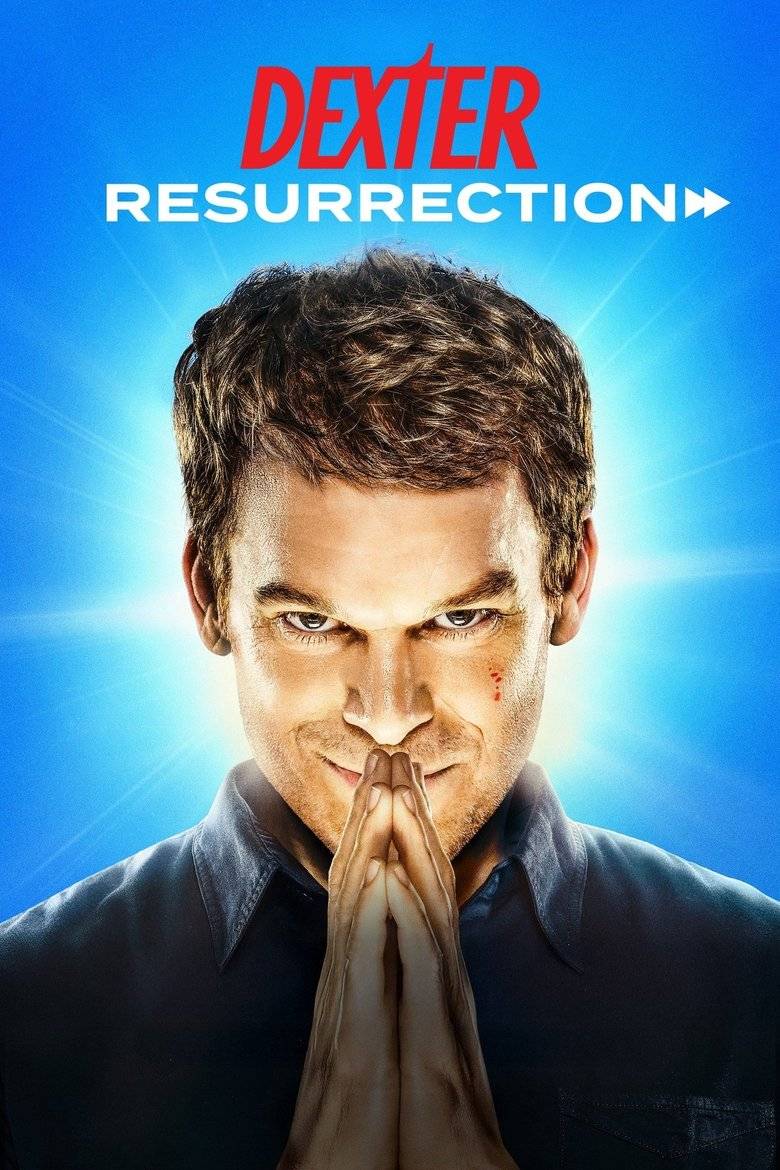
- Release Date
-
July 13, 2025
- Network
-
Paramount+ with Showtime
- Directors
-
Marcos Siega
- Writers
-
Scott Buck
